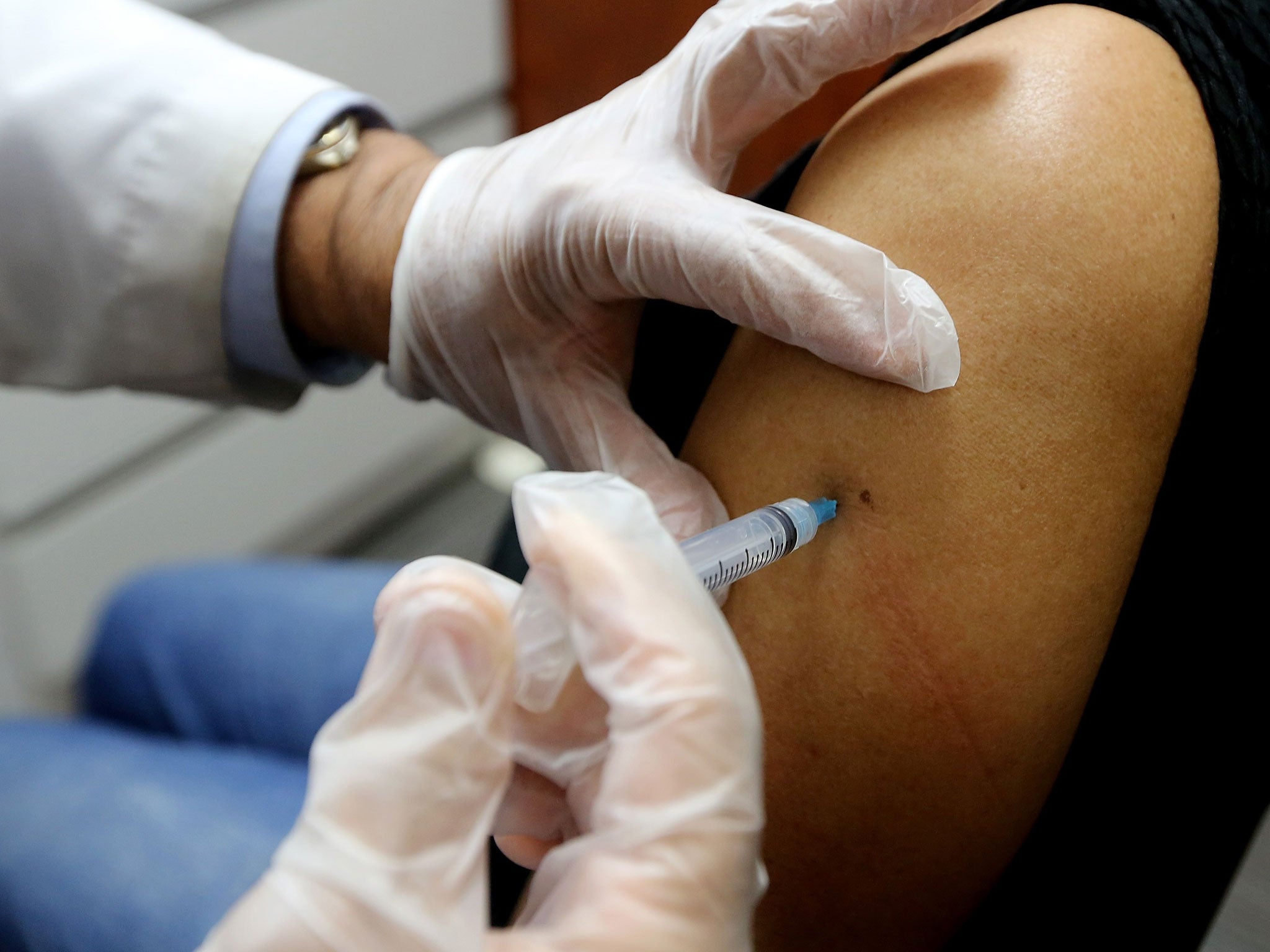Tackling vaccine fears and misinformation key to preventing next pandemic, WHO says
‘The question is not if we will have another pandemic, but when,’ World Health Organisation director general says

Addressing misinformation about vaccines will be key to preventing the next global flu pandemic and minimising harm when it does occur, the World Health Organisation has said.
Setting out its Global Influenza Strategy for the next decade, the WHO has said another outbreak like the swine flu pandemic is only a matter of time.
To have the best chance of preventing it every country needs to have a robust annual flu vaccination scheme as well as flu surveillance, for animals and humans, to respond to emerging outbreaks.
Vaccination and surveillance can reduce the chances of a flu virus spreading in animals or making the jump into humans, who may only have limited immunity to the new strain.
“The on-going risk of a new influenza virus transmitting from animals to humans and potentially causing a pandemic is real,” said WHO director general Dr Tedros Adhanom Ghebreyesus.
“The question is not if we will have another pandemic, but when. We must be vigilant and prepared – the cost of a major influenza outbreak will far outweigh the price of prevention.”
Misinformation about vaccines and hesitancy among parents and adults about getting vaccinated has been identified as one of 2019’s top global health threats by the WHO.
This contributed to the record breaking measles outbreak in Europe last year, but also affects annual seasonal flu vaccinations – which are further hampered by the fact the jab changes annually.
The rapidly evolving flu virus means the jabs rarely work beyond one year, and because manufacturers have to predict the predominant strain of flu a year in advance it can sometimes be ineffective – as happened in winter 2017/18.
The WHO report states: “This annual vaccination requirement as well as varying (and sometimes low) vaccine effectiveness have been highlighted as reasons leading to vaccine hesitancy and misperception among those at increased risk for complications of influenza.”
The key objectives in the WHO strategy include promoting research into new treatments, improving global surveillance and to “strengthen pandemic preparedness”.
It also specifies a need to expand vaccination programmes globally to protect vulnerable groups, including the elderly, pregnant women and children.
This will be achieved “through addressing vaccine misperceptions and hesitancy, and promoting the public financing of seasonal influenza vaccines for target groups”.
Social media platforms have come under fire by health groups for acting as an unmoderated breeding ground for damaging myths about vaccines – half of UK parents say they have seen posts saying vaccines pose a health risk.
However it will also need to focus on programmes to distribute vaccines in poorer regions.
WHO data shows despite 47 per cent of the global population living in the eastern Mediterranean, South East Asia and Africa, these regions only received 5 per cent of the 486 million flu vaccines distributed in 2015.
While the world is better prepared for a flu outbreak than at any other point, Dr Ghebreyesus said there is more work to do.
“Fundamentally, it is about preparing health systems to manage shocks, and this only happens when health systems are strong and healthy themselves.”
Join our commenting forum
Join thought-provoking conversations, follow other Independent readers and see their replies
Comments
Bookmark popover
Removed from bookmarks